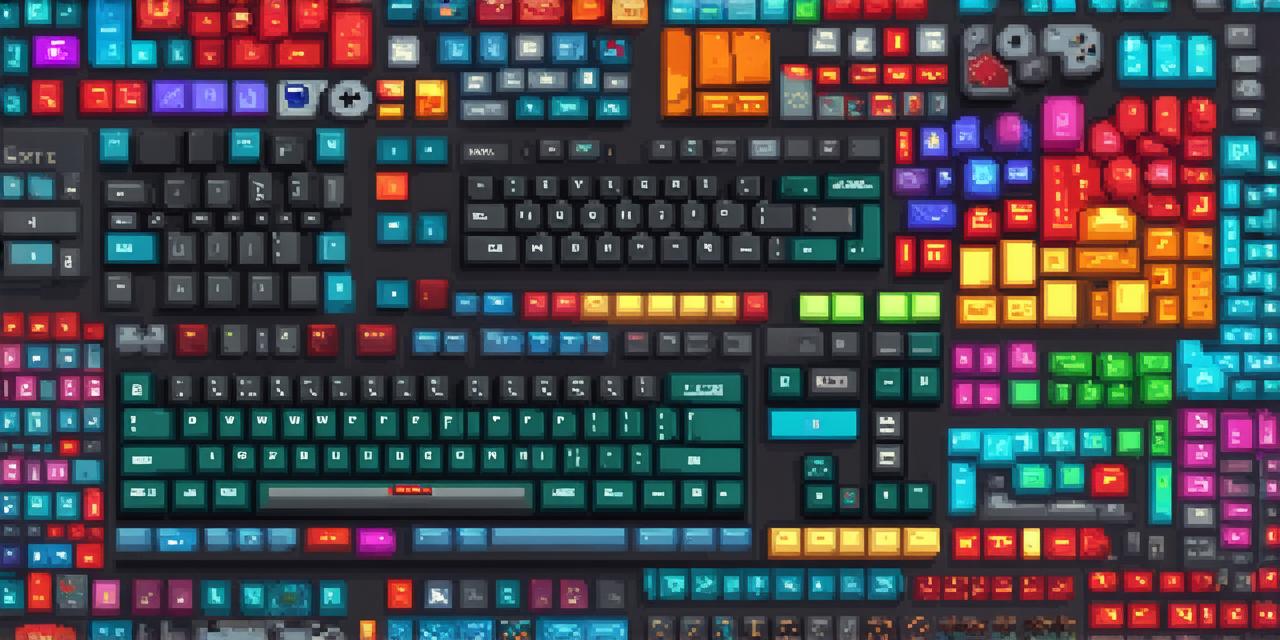Game development is an exciting and rapidly growing field that involves creating video games for various platforms. In this article, we will explore who game developers are and what they do to create these engaging and immersive experiences.
Who are Game Developers?
Game developers can be classified into several roles based on their responsibilities. These include game designers, programmers, artists, sound designers, and producers, among others. Let’s take a closer look at each of these roles:
- Game Designers: These individuals are responsible for creating the concept, rules, and mechanics of a game. They work closely with other team members to ensure that their design is feasible and aligns with the overall vision of the game.
- Programmers: Game programmers are responsible for coding and implementing the logic behind the game’s mechanics. They work closely with game designers to ensure that the code accurately represents the intended gameplay experience.
- Artists: Game artists are responsible for creating the visual assets of a game, including characters, environments, and objects. They use specialized software to create 2D and 3D models and textures.
- Sound Designers: These individuals are responsible for creating the audio elements of a game, such as sound effects, music, and voiceovers. They work closely with other team members to ensure that the sound accurately reflects the game’s mood and atmosphere.
- Producers: Game producers oversee the entire development process, from concept to release. They manage budgets, schedules, and resources, ensuring that the project stays on track and within budget.
The Skills Required for Game Development
Becoming a game developer requires a combination of technical and creative skills. Here are some of the essential skills:
- Programming: A solid understanding of programming languages such as C++, Java, or Python is essential for game development. These languages are used to create the logic behind the game’s mechanics.
- Artistry: Game artists must have a strong grasp of art and design principles to create visually appealing assets for games. They use specialized software to create 2D and 3D models and textures.
- Creativity: Game designers must be able to think creatively to come up with innovative ideas and solutions to complex problems. They must also have a deep understanding of game mechanics and player psychology.
- Communication: Effective communication is essential for game development, as team members must work together to ensure that their work aligns with the overall vision of the game.

- Teamwork: Game development is a collaborative effort that requires strong interpersonal skills. Developers must be able to work well with others and manage conflicts when they arise.
The Tools and Technologies Used in Game Development
There are several tools and technologies used in game development, depending on the role of the developer. Here are some examples:
- Programming Languages: As mentioned earlier, programming languages such as C++, Java, or Python are essential for game development.
- Game Engines: Game engines such as Unity or Unreal Engine provide a framework for creating games. These engines include pre-built tools and assets that can help developers create games more quickly and efficiently.
- Art Tools: Game artists use specialized software such as Blender, Maya, or Photoshop to create visual assets for games.
- Audio Editing Software: Sound designers use software such as Pro Tools or Ableton Live to edit audio elements for games.
- Project Management Tools: Game producers use project management tools such as Trello or Asana to manage schedules and resources.
Summary
Game development is a fascinating and rewarding field that requires a combination of technical and creative skills. By understanding who game developers are, the skills required for their work, and the tools and technologies used in this line of work, you can gain a deeper appreciation for the process of creating these engaging and immersive experiences. Whether you are a budding game designer or simply interested in learning more about this exciting field, we hope that this guide has been informative and helpful.
